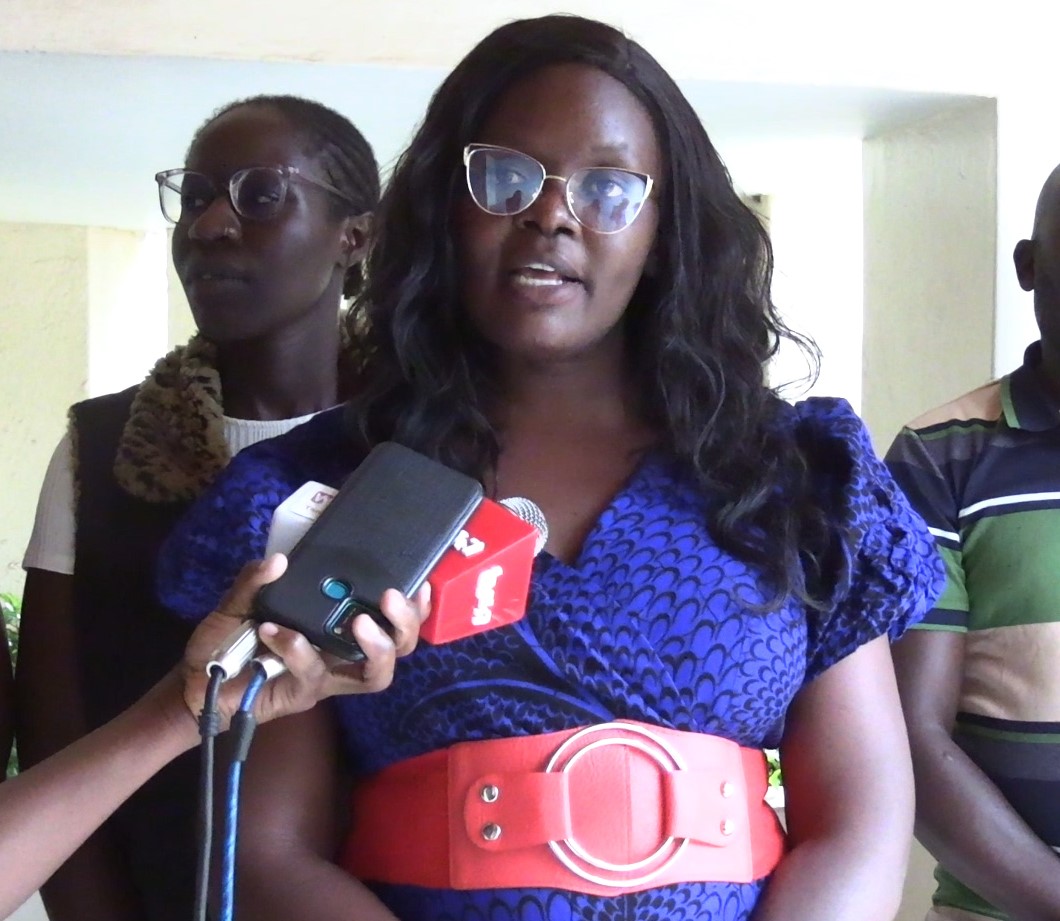 Phelgona Odipo, a field officer, Siaya County Youth Network, addressing the press in Bungoma town on July 23, 2025
Phelgona Odipo, a field officer, Siaya County Youth Network, addressing the press in Bungoma town on July 23, 2025County governments have been urged to prioritise youth empowerment in the agricultural sector by allocating adequate resources to agribusiness in their annual development plans.
This call comes as concerns grow over the limited support for youth-led farming ventures despite agriculture being one of the key drivers of employment and economic growth in Kenya.
Speaking during a youth training forum organised by the Siaya County Youth Network in Bungoma on Wednesday, John Mukenya, an Agricultural and climate change advocate, lamented the inadequate budgetary support for agribusiness in Bungoma County.
He noted that after reviewing the County Integrated Development Plan (CIDP) 2025/2026, it became evident that Bungoma County has not committed sufficient funding to promote youth participation in agriculture.
“The review of the CIDP clearly shows that Bungoma County has overlooked youth agribusiness. There is very little commitment when it comes to financing programs that can uplift young farmers,” Mukenya said.
He added, “If we want to tackle youth unemployment, we must invest in agribusiness. Agriculture is not just farming, it’s a full economic value chain,”
In addition, Mukenya disclosed that the Bungoma County government had only allocated Sh900 million towards the entire agriculture sector in the 2025/26 budget, a figure he termed insufficient considering the challenges facing farmers and youth agripreneurs in the region.
“You can’t expect transformation in agriculture if your budget does not reflect that vision. Youths want to venture into poultry, dairy farming, and value addition, but they lack support structures,” Mukenya added.
He further criticized the county’s focus on maize production at the expense of other high-value crops that could generate better returns and encourage youth participation.
“It’s like the county government is obsessed with maize. Every year, they distribute maize seeds and fertilisers, yet they ignore other promising value chains like soybeans, millet, sorghum, avocados, and sim sim,” he observed.
“Young people are innovative. If supported, they can transform these value chains into profitable agribusiness ventures.”
Mukenya emphasized the need to diversify agricultural investments, noting that farmers, especially the youth, need options beyond traditional crops.
He also challenged county leaders to create a more inclusive agricultural strategy that accommodates youth ideas and modern farming practices.
As part of their training sessions, the youth participants developed a Memorandum of Understanding (MoU) outlining key demands and recommendations to be submitted to the Bungoma County Department of Agriculture, Livestock and Cooperatives.
The MoU aims to push for deliberate inclusion of youth needs in policy and budgeting processes.
“We are not just talking; we have prepared an MoU that will be formally presented to the County Executive Committee Member (CEC) for Agriculture,” Mukenya said.
Phelgona Odipo, a field officer, Siaya County Youth Network, revealed that the youth training was part of a broader programme funded by GIZ aimed at enhancing the participation of young people in governance and agriculture.
“Our project is currently running in six counties Siaya, Kisumu, Bungoma, Kakamega, Vihiga, and Busia,” Odipo explained.
She added, “We are working directly with youth groups and individuals interested in the agricultural sector,”
She added that the programme focuses on capacity building, equipping youth with skills in advocacy, budget analysis and engagement with county governments.
“Through these sessions, we have been able to educate youth on the budget-making process and their right to participate,” she said.
Odipo highlighted the importance of recognizing agriculture as a viable source of employment for young people, stressing the need for counties to go beyond token participation.
“Youth need to see agriculture as a business, not a fallback plan,” she said. “If given access to credit, land, training and markets, they can run successful agribusinesses that uplift their communities,”

















